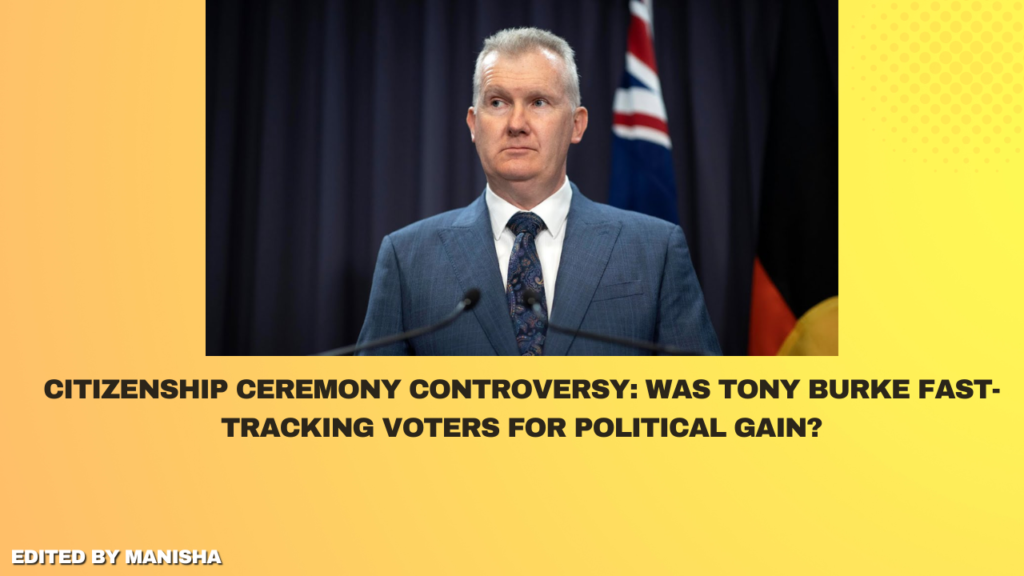
Immigration Minister Tony Burke has defended a series of citizenship ceremonies he personally ordered to address a significant backlog, rejecting claims of political interference made by the Coalition.
Opposition Leader Peter Dutton questioned the government’s actions after two mayors in Western Sydney raised concerns, suggesting that Mr. Burke’s involvement in extra ceremonies might have political motivations, especially given the new citizens would be eligible to vote in key Labor-held seats in the upcoming federal election.
“Why would you rush people through the process to gain citizenship just before an election?” Mr. Dutton asked.
In response, Mr. Burke called it “outrageous” to imply that people who have met all legal requirements should be denied the opportunity to pledge their lifelong commitment to Australia.
A spokesperson for Mr. Burke confirmed he had organized additional ceremonies, emphasizing that no one had been fast-tracked. The initiative was being carried out in cities and regional areas nationwide, not just in Western Sydney.
“Our government believes that anyone who meets the necessary criteria should be able to take their citizenship pledge without unnecessary delay,” the spokesperson said.
Speaking to Sky News, Mr. Burke described the Coalition’s criticism as “weird,” explaining that the backlog was due to councils not holding enough ceremonies for those eligible. He added, “What I’d say to those complaining is to show some patriotism. People wanting to make a lifelong pledge to Australia is a good thing.”
Liberal Deputy Leader Sussan Ley questioned the sheer number of citizenship ceremonies, suggesting the timing raised concerns. “12,500 ceremonies? Some of these certificates are even being handed out by Tony Burke in his own electorate. I hope he’s not using public funds for political gain, especially with an election approaching,” she said on Seven’s Sunrise program.
Burke acknowledged that there were over 50,000 people on the citizenship waiting list. According to Department of Home Affairs statistics, 78% of applicants are expected to wait less than three months, while 20% will wait between three to six months. The longest delays are seen in regional areas, where fewer new citizens are processed.
Mr. Burke explained that he had presided over citizenship ceremonies whenever possible, noting that the citizenship minister traditionally conducts these ceremonies. He dismissed the idea that his involvement had political motives, saying, “I don’t know how people will vote, but I know they’re making a pledge to Australia. No council should be holding people back from that.”
Mr. Dutton’s comments came in response to a question during the Sky News antisemitism summit. He also accused the government of bringing in people from conflict zones without the proper checks on tourist visas, referencing Palestinian visa holders.
The government has maintained that normal security protocols have been followed for arrivals from the Occupied Palestinian Territories. None of these individuals has been granted citizenship, and they would not be eligible for citizenship until they have spent at least four years in Australia. A spokesperson for Mr. Dutton clarified that he did not suggest Palestinian visa holders had been fast-tracked for citizenship.